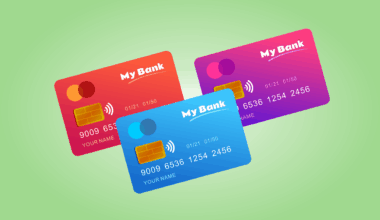Payroll Data Privacy in Employee Self-Service Systems
In today’s digital age, organizations must prioritize payroll data privacy within employee self-service systems. This growing trend allows employees to access their payroll information but brings challenges in protecting sensitive data. Ensuring privacy requires implementing certain practices and technologies. Organizations need to establish clear protocols governing how personal information is collected, stored, and accessed. A comprehensive privacy policy will help outline the data protection measures in place. Employees must clearly understand their rights regarding their payroll information. Furthermore, organizations should conduct regular training sessions on data privacy implications related to self-service systems. This will raise awareness among employees about potential risks, such as data breaches and phishing attacks. Employing robust security measures like multi-factor authentication can significantly enhance data protection. Moreover, organizations must ensure that only authorized personnel access payroll data, thereby minimizing the risk of internal threats. Regular audits can also help identify vulnerabilities in the system. Ultimately, fostering a culture of data privacy will build trust between employees and management, contributing to a healthier workplace atmosphere where everyone feels secure with their information.
Payroll data privacy is a crucial aspect that must be addressed meticulously. Effective encryption practices should be employed to safeguard sensitive information during storage and transmission. Encrypting payroll data renders it unreadable to unauthorized users. This method is an essential component of an organization’s cybersecurity strategy. Furthermore, organizations should implement access controls to restrict who can view or edit this data. Role-based access ensures that only individuals with the necessary permissions can handle payroll information. Regularly updating access credentials is also vital to enhancing data security. Keeping payroll systems updated with the latest software patches guards against vulnerabilities that could be exploited by malicious actors. It’s essential to have a backup plan to ensure business continuity in case of data loss or breaches. Employees must also be educated about the importance of safeguarding their accounts and recognizing phishing attempts. Transparency with employees about which data is collected and how it is used promotes trust. Organizations should regularly review their data privacy practices to adapt to changing regulations, such as GDPR. By prioritizing payroll data privacy, organizations can create a secure and compliant self-service environment for employees.
Implementing Effective Security Measures
To ensure payroll data privacy, implementing effective security measures is imperative. Organizations should conduct thorough risk assessments to identify vulnerabilities within their self-service systems. This step provides insights into potential loopholes that malicious individuals can exploit. Following the risk assessment, organizations can devise an action plan to mitigate these risks. Employing technologies like firewalls and intrusion detection systems can enhance the security framework. Additionally, strong password policies encourage employees to create secure login credentials for accessing payroll information. Organizations should enforce regular password changes to further protect sensitive data. Data loss prevention solutions can also monitor and control the transfer of sensitive information, preventing unauthorized sharing. Regular security audits serve to evaluate the effectiveness of these measures and ensure compliance with industry standards. Employee feedback should also be encouraged, as frontline users may identify areas for improvement. Keeping employees informed about emerging threats can enhance the overall security posture. Ultimately, building a robust security framework fosters a secure environment for payroll data, enhancing employee confidence in self-service systems.
Compliance with data protection regulations is another vital component of payroll data privacy. Organizations must familiarize themselves with applicable regulations, such as the General Data Protection Regulation (GDPR) and the Health Insurance Portability and Accountability Act (HIPAA). These laws impose strict guidelines regarding the handling of personal information. Organizations must implement necessary policies and procedures to remain compliant with these regulations. Regular training should be provided to employees to ensure they understand their responsibilities related to data protection. Furthermore, organizations should conduct periodic audits to evaluate compliance levels and identify areas for improvement. Breaches of these regulations can lead to significant penalties and damage to the organization’s reputation. Therefore, organizations must take proactive measures to protect employee data. Transparency is key; organizations should inform employees about their rights in relation to their data. Data subject access requests must be honored, allowing employees to review the information held about them. Furthermore, organizations should have a well-defined process for addressing and reporting data breaches. Adopting a comprehensive compliance strategy fosters a culture of accountability and emphasizes the importance of data privacy.
Building Trust via Transparent Practices
Building trust with employees regarding payroll data privacy is essential. Transparency plays a critical role in achieving this trust. Organizations must communicate clearly about their data practices and the measures in place to protect sensitive payroll information. When employees feel informed, they are more likely to engage positively with self-service systems. Providing regular updates about data privacy initiatives and any changes to policies fosters a culture of openness. Moreover, organizations should establish feedback mechanisms that allow employees to voice concerns or suggestions about data handling practices. Engaging employees in discussions about payroll data privacy can lead to valuable insights. Creating informative materials, such as FAQs or guidelines, can help educate employees on how to use self-service features securely. Prioritizing employee privacy reinforces the organization’s commitment to ethical data practices. A culture of trust encourages employees to embrace self-service systems, promoting efficiency and accuracy in payroll processing. Additionally, organizations that prioritize transparency are more likely to attract and retain top talent who value data privacy. Trust is established through consistent actions and clear communication regarding payroll data privacy.
Employers must also consider the technological aspects of payroll data privacy. Investing in secure payroll software that offers features like encryption, access controls, and audit trails is vital. These tools help in monitoring user activity and ensuring that sensitive data is not mishandled. Furthermore, organizations should evaluate and choose vendors carefully to ensure they maintain high security standards. Service level agreements (SLAs) should detail how vendors handle payroll data privacy to ensure compliance. Regularly assessing vendor practices is essential to mitigate third-party risks. Organizations should ensure that third-party systems integrating with self-service payroll programs comply with the same privacy standards. Additionally, it’s important to have incident response plans in place. In the event of a data breach, organizations must act swiftly to mitigate damage and communicate with affected employees. Transparency during such events also builds trust and reinforces the commitment to data privacy. By prioritizing technology-driven solutions and thorough vendor assessments, organizations foster a secure environment for payroll data. This commitment ensures employee information remains confidential and protected from unauthorized access.
Future Trends in Payroll Data Privacy
As technology continues to evolve, organizations must stay ahead of trends in payroll data privacy. The adoption of artificial intelligence and machine learning can enhance data security by identifying unusual patterns of behavior. This proactive approach enables organizations to address potential risks before they escalate. Moreover, as remote work becomes increasingly common, organizations must implement strategies to manage data privacy effectively. Secure remote access protocols will be essential to protect sensitive payroll information in a decentralized work environment. Organizations should also monitor regulatory trends to ensure their payroll practices remain compliant with evolving legal frameworks. Investing in employee awareness and education remains a crucial element of a future-focused strategy. Organizations need to keep employees informed about privacy risks and best practices in handling personal information. The growing importance of privacy in hiring and retention strategies cannot be overlooked. Employees value organizations that prioritize their privacy and ethical handling of information. Overall, staying adaptable and responsive to emerging trends will safeguard payroll data privacy and enhance employee trust in self-service systems. Forward-thinking organizations can protect sensitive information while promoting an open, secure workplace.
In conclusion, payroll data privacy in employee self-service systems is essential for building a secure and trustworthy work environment. Organizations must prioritize effective security measures, compliance with data regulations, and transparency to foster trust. By implementing robust technologies and regularly assessing practices, businesses can reduce vulnerabilities in managing payroll data. Educating employees on the importance of safeguarding their information will further enhance their trust in these systems. Regular audits and reviews can help organizations adapt to changes in technology and regulations, ensuring they maintain high standards of data privacy. Investing in employee self-service systems not only improves efficiency but also demonstrates a commitment to protecting sensitive information. The role of payroll in overall employee satisfaction cannot be understated, and addressing data privacy concerns is a critical aspect. As organizations adapt to the future of work, embracing flexibility and security will establish a competitive advantage. Ultimately, the success of self-service payroll systems relies on a foundation of trust, transparency, and proactive security measures. Employers and employees alike benefit from a strong emphasis on privacy, contributing to a healthier workplace culture.





